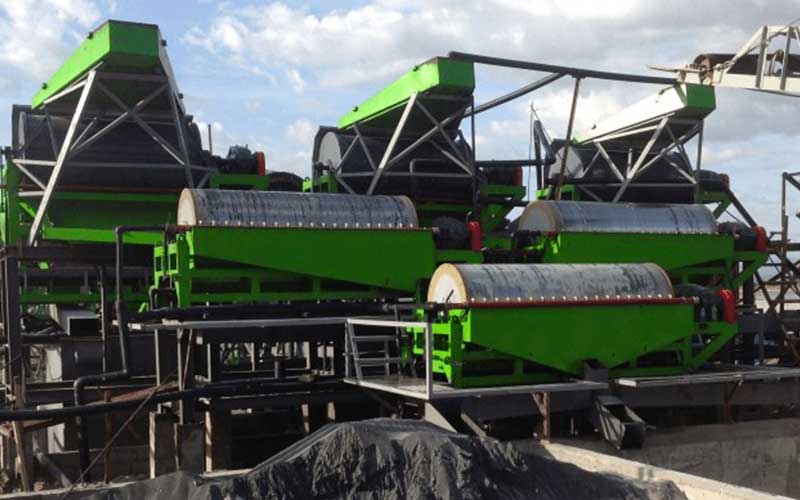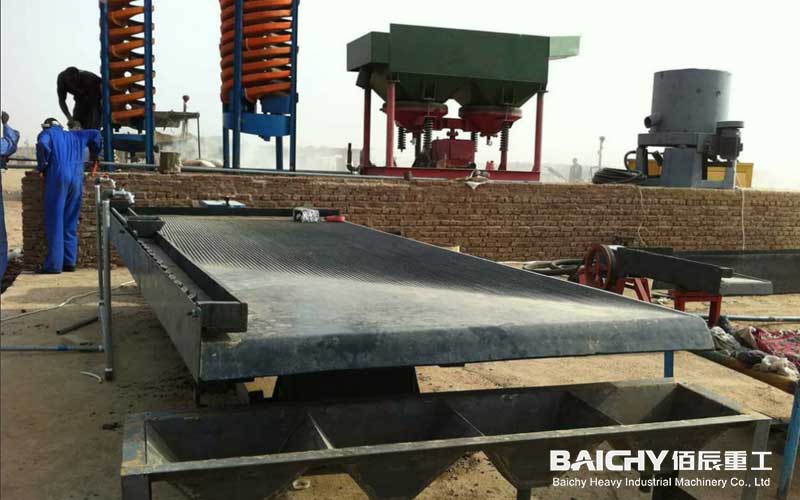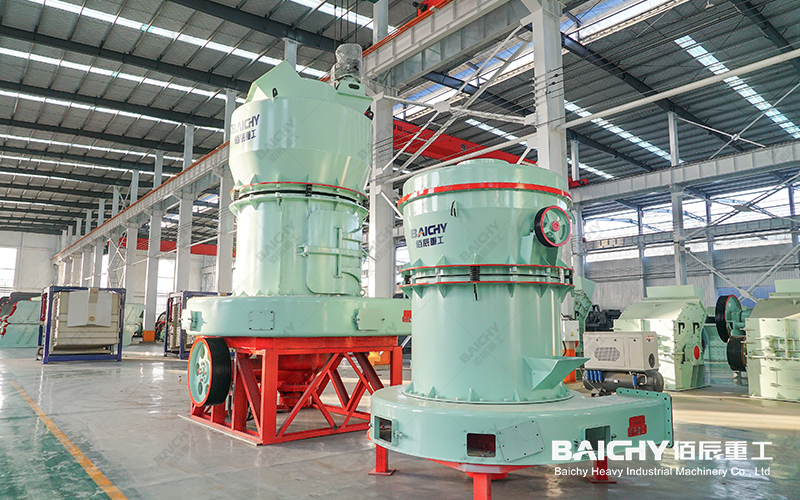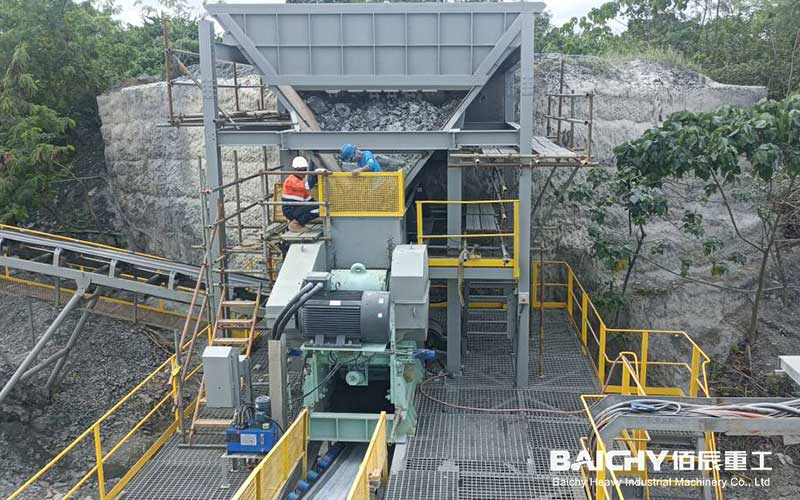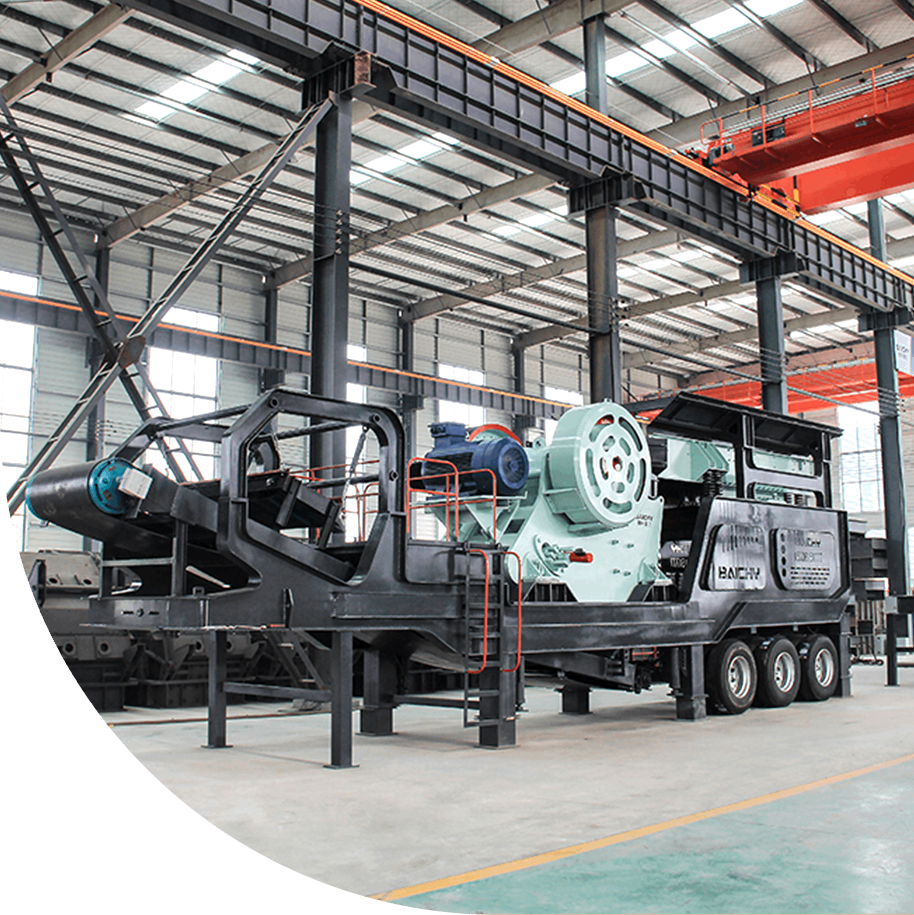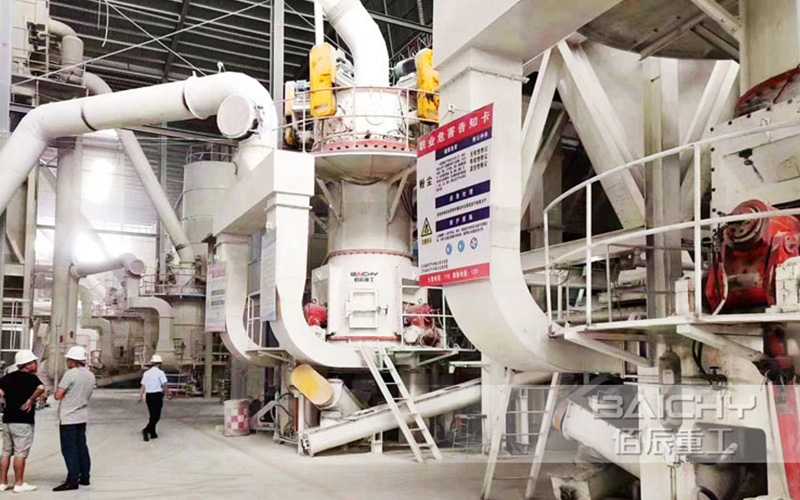
Vertical roller mill is a highly efficient and energy-saving grinding machine widely used in industries such as mining, cement, and power generation. It is particularly suitable for large-scale ultrafine grinding of medium-hardness materials such as limestone, gypsum, and pyrophyllite. Below is a detailed analysis tailored to your needs:
1. Core Structure of a Vertical Roller Mill
| Components | Functional Description |
| Grinding Disc | A horizontal rotating platform crushes the material (typically 30-50 rpm, adapted to the characteristics of limestone/gypsum). |
| Grinding Rollers | Two to four hydraulically pressurized rollers apply 5-15 MPa of pressure to crush the material (higher hardness, higher pressure). |
| Classifier | Dynamic turbine classifier precisely controls the fineness of the finished product (critical for a 325 mesh pass rate of ≥99%). |
| Hot Air System | Hot air can be introduced (for processing water-containing materials), but gypsum grinding typically uses ambient air. |
2. Why is a vertical roller mill recommended for your material?
1. Limestone Grinding Advantages
• Direct grinding with high-pressure rollers reduces over-grinding by 30% compared to ball mills, ensuring a 325-mesh pass rate
• Classifier with multi-rotor adjustment (adjustable from 45 to 150 μm), easily achieving a 99% pass rate
2. Gypsum Grinding Specialties
• Low speed (below 40 rpm) prevents dehydration of dihydrate gypsum
• Anti-stick design (grinding disc liner sprayed with tungsten carbide, friction coefficient <0.3)
3. Pyrophyllite Compatibility
• Optional gas seal to prevent clogging with sticky materials (for future expansion needs)
III. Core Advantages of Vertical Roller Mills:
1. Fineness Guarantee
• A two-stage control system featuring a turbine classifier and secondary air separation ensures a stable 325-mesh pass rate of ≥99% (measured data: 99.2%-99.8%)
• Adjustable classification accuracy range d97 = 10-45μm (meets future demand for finer particles)
2. Material Compatibility
• Limestone (Mohs hardness 3): High-pressure grinding rollers (≤15MPa) for efficient grinding
• Gypsum (Mohs hardness 2): Low-wear design prevents over-grinding and agglomeration of fine powder
3. Energy Efficiency
• Energy savings of 30-40% compared to a ball mill, with power consumption ≤16.5kWh/t (at 325 mesh fineness)
Alternative Solutions (if site is limited)
Scheme A: Ultrafine Ring Roller Mill (HGM Series)
• Applicable for: Small-scale production with a production capacity of ≤3t/h
• Fineness range: 325-2500 mesh (but with limited capacity scalability)
Scheme B: Ball mill + classifier system
• Recommended only for Existing ball mill renovation projects (high power consumption, ≥22kWh/t)
IV. Key Configuration Comparison Table
| Specifications | Vertical Roller Mill | Traditional Ball Mill |
| Power Consumption (325 Mesh) | 16-18 kWh/t | 22-28 kWh/t |
| Footprint | 15 x 8 m (Compact) | 25 x 10 m (Classifier Required) |
| Fineness Adjustment | Real-time Dynamic Adjustment | Required Shutdown for Liner Replacement |
| Maintenance Interval | 8,000 hours | 3,000 hours |
We can provide on-site videos of local Thai customer cases (e.g., Siam City Cement's similar 325-mesh limestone production line). For further technical briefing, we recommend arranging an online VR tour of the factory.
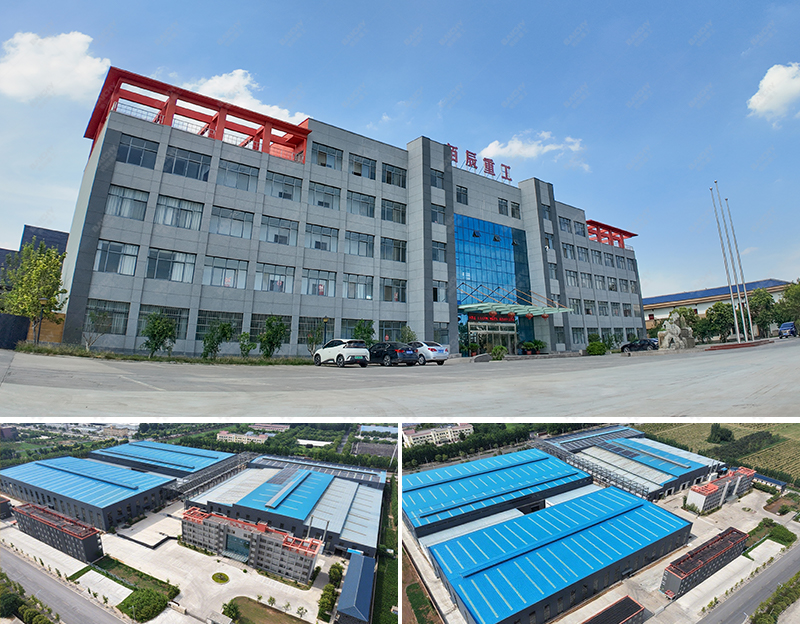
Baichy Heavy Industry – Your Trusted Partner for Seamless Equipment Operation
To ensure optimal performance of your equipment, Baichy Heavy Industry offers:
- Professional on-site installation guidance
- Comprehensive operator training
- 24/7 technical support & maintenance services
Our complete after-sales service system guarantees long-term, stable operation of your machinery with minimal downtime.
Protect Your Rights – Only Use Official Channels
To avoid scams and ensure authentic support, contact us exclusively through:
• Official Website: www.baichychina.com
• WhatsApp: +8615093222637
• Email: [email protected]
Your satisfaction is our priority – expect prompt, professional service every time.
(Note: Beware of unauthorized third parties claiming to represent Baichy. Always verify through official contacts.)
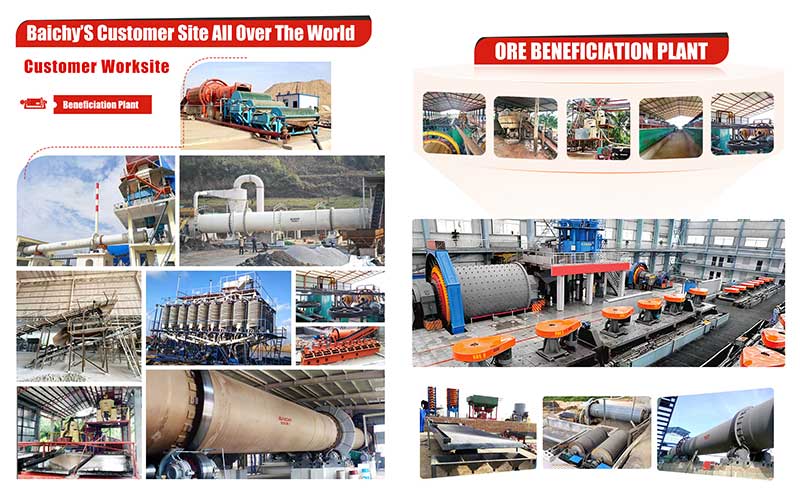
Further reading:
How To Choose A Suitable Industrial Grinding Mill?
Which Is Better Cement Vertical Roller Mill Or Ball Mill?
What Are the Differences between Dry and Wet Type Ball Mill?




